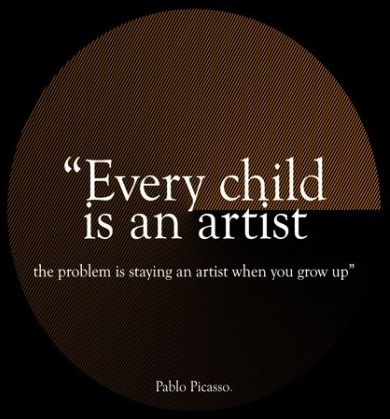-
Home / Indicting Higher Education in the Arts and Beyond. Why does anyone pursue higher education in the arts?
Was this valuable to you?
other links and editorials from c_prompt
There’s one very clear take-away from the latest report released by the collective BFAMFAPhD: people who graduate with arts degrees regularly end up with a lot of debt and incredibly low prospects for earning a living as artists. Or, as they put it in the report, titled Artists Report Back: A National Study on the Lives of Arts Graduates and Working Artists, “the fantasy of future earnings in the arts cannot justify the high cost of degrees.”
As they did with their previous work, collective members Vicky Virgin, Julian Boilen, Susan Jahoda, Blair Murphy, and Caroline Woolard analyzed data from the US Census Bureau’s American Community Survey. Specifically, they looked through a publicly available slice of that data (the 2012 1-year Public Use Microdata Sample). From that sample they extrapolated their numbers about the larger population, estimating that there are a total of 1.4 million people in the US who self-identify as having a primary occupation of “writer, author, artist, actor, photographer, musician, singer, producer, director, performer, dancer, choreographer, [or] entertainer” — the group’s definition of a “working artist” for this report.
According to BFAMFAPhD’s analysis, a very small percentage of art school undergraduates end up as working artists (~10%), and that fully 40% of working artists over age 25 don’t even have undergraduate degrees of any kind, let alone art degrees. So why on earth would anyone spend so much money on such a degree?
...
All of this makes it really tough to understand what income really means for an artist when you’re trying to isolate their artistic earnings. So even reporting modest numbers like the fact that working artists with degrees in New York City make a median income of $25,000 (as BFAMFAPhD did in their earlier data analysis), if you dig into that number for each individual, the sources of that money are likely to be highly variable and rarely exclusively from creative output. That all makes it tricky when you want to present young people with a clear picture of their earning prospects from artistic work.
Which is to say, income numbers that add everything together can run the risk of inadvertently supporting what I wholeheartedly agree is a fantasy of steady, lifelong earnings from art-making alone.
About art
 arthttps://valme.io/c/artc_prompt
arthttps://valme.io/c/artc_promptThis is a community of art lovers that share their favorite pieces, news or information that will impact the art community.



My but that's a depressing article. Could be an indictment of modern art or modern philosophy. Reading articles like Good job, Canada: Taylor Swift hits No. 1 on the Canadian iTunes charts with eight seconds of static, it's hard to know which.